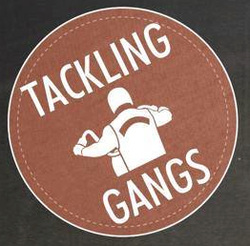"Every journalist who is not too stupid or too full of himself to notice what is going on knows that what he does is morally indefensible".
Malcolm deals with ideas around deceit and reporting. It is equally important for all writers (and researchers) of non-fiction. Basically Malcolm examines the true story of Joe McGinniss, a writer, who befriended Jeffrey McDonald, a convicted murderer proclaiming his innocence. The writer doesn’t believe MacDonald’s story but tells him that he does so he can inveigle his way into McDonald’s life and write a bestseller.
He does this by feigning a deep friendship over many years and the deceit is only unraveled by the book’s publication when the murderer is confronted in a television interview with the underlying truth that his closest friend was actually his worst enemy. It was an ugly betrayal.
The premise of the book is the responsibility of the author to the subject, and this issue is important to me as I explore the subject of murder and begin to hang out with and interview murderers (and importantly victims, for that matter), but I find the idea that somehow all researchers are parasites is flawed.
Ethics in research and writing are not new to me. Patched was a project rife with ethical dilemmas. I have never publically discussed my fieldwork in anything other than perfunctory ways – mindful that some stories may quickly change the focus from my results to my research techniques.
Telling (hypothetical) stories of me behind the wheel of a stolen car, removing fingerprints from guns being unloaded from a boot, perverting the course of justice, or drug dealing may raise the odd eyebrow.
But one topic about which I can rest assured was my fastidious approach to protecting my sources. Regardless of who they were and what the situation, what I saw or what I was told was never disclosed if I thought it would compromise those involved.
The writer in Janet Malcolm’s book did not feel like he owed a duty to the murderer he ‘befriended’ arguing that the ugly nature of his crimes (he was convicted of brutally murdering his children and pregnant wife) meant deceit was warranted to uncover the truth. The ends, he argued, justified the means.
But the ‘end’ in my view, is not just the book that the writer produces. It is bigger than that. How a researcher behaves doesn’t just reflect on them, but their peers too and in no small part it also impacts on their discipline generally.
If people who agree to assist in research – particularly regarding sensitive subjects – are burnt or betrayed by researchers, who will volunteer to help with future research, even that undertaken by others? The well from which we gather knowledge runs dry.
Research ethics, like ethics more generally, are not for selected use and must be applied equally. In this way, while they may have lost it from all others in society, murderers deserve respect from researchers.
Malcolm’s book is an important and confronting one that does have a stunning opening line, but I don’t agree with her that to greater or lesser extents we are all narks. I learned that you can sleep well at night having gained all of the information you need, and have done that in a way that does not betray people. And given my topics are gangs and murderers, that’s a very good thing.



 RSS Feed
RSS Feed